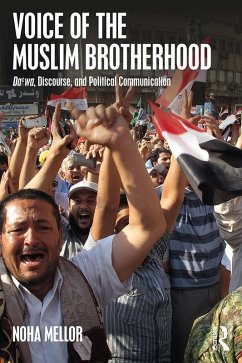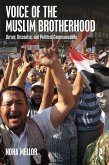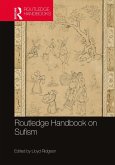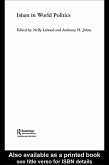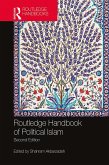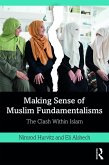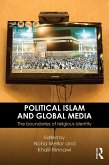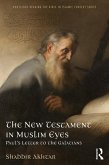Dieser Download kann aus rechtlichen Gründen nur mit Rechnungsadresse in A, B, BG, CY, CZ, D, DK, EW, E, FIN, F, GR, HR, H, IRL, I, LT, L, LR, M, NL, PL, P, R, S, SLO, SK ausgeliefert werden.
James Jankowski, Professor Emeritus, University of Colorado, USA
Throughout decades of opposition and repression, the message of the Muslim Brotherhood continued to appeal to large segments of the Egyptian population. The movement dynamically used all media at its disposal, from books, magazines, and pamphlets to internet sites. Noha Mellor has admirably unraveled its media strategy, which makes her study vital for historians, social scientists, and media researchers seeking to understand modern Egypt and its Islamist movements.
Uri M. Kupferschmidt, Professor, University of Haifa, Israel
In Mellor's discourse analysis, one can see that modern Egyptian politics reflected a religionized secularism and a secularly conscious religious discourse that was and is a synthesis of religion and the secular. In an important way, political modernity in Egypt, as shown in Mellor's study, is a "seculigious" modernity and raises questions about whether or not modernity itself is necessarily secular" (...) Noha Mellor presents significant in-depth analyses of the content of Muslim Brotherhood discourses with extensive translations. At the same time, she provides an important contribution to the broader understanding of the relationships between the secular and the religious in the discourses of modernity.
John O Voll, Georgetown University, USA, printed in The Middle East Journal (MEJ)

